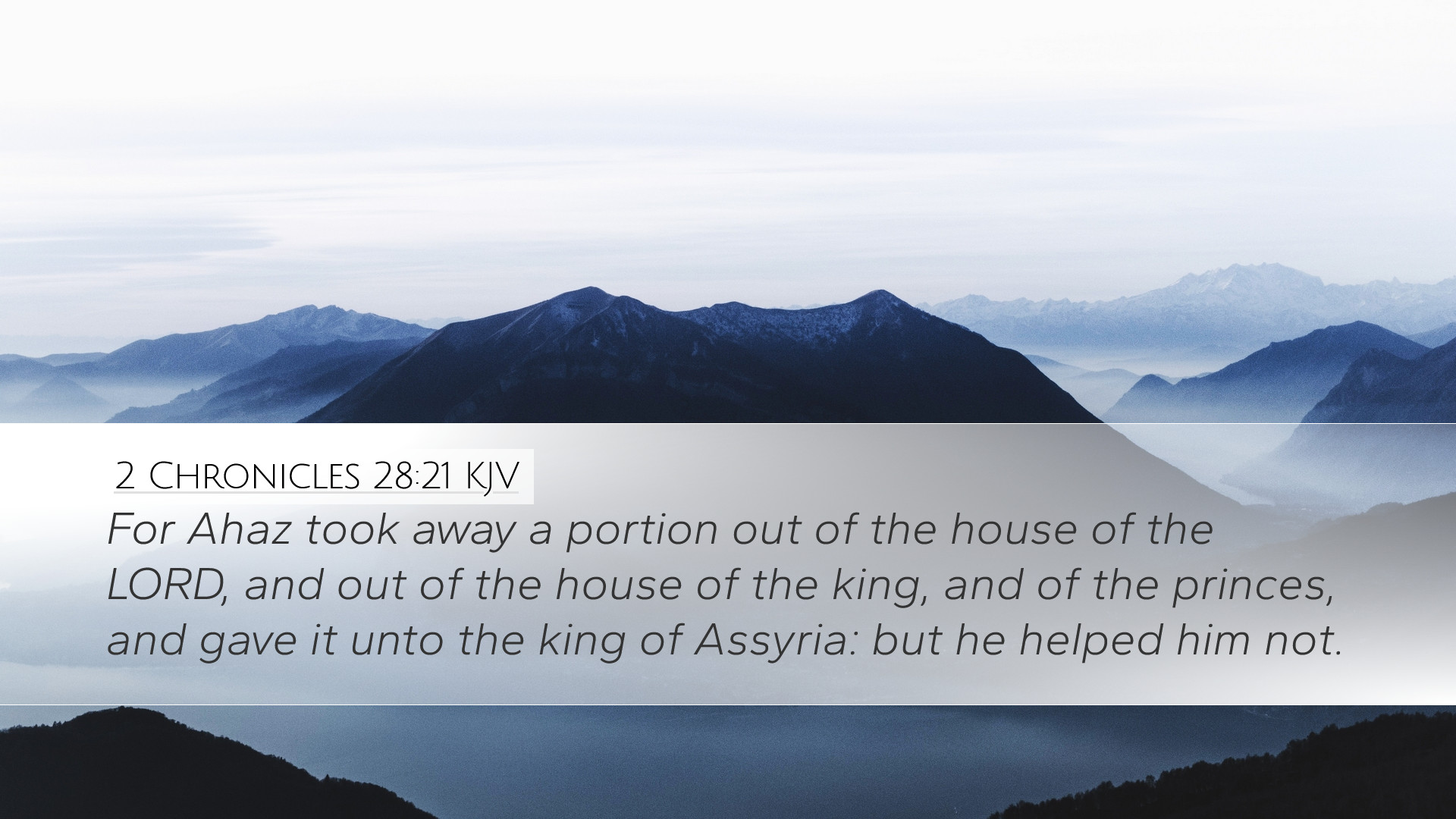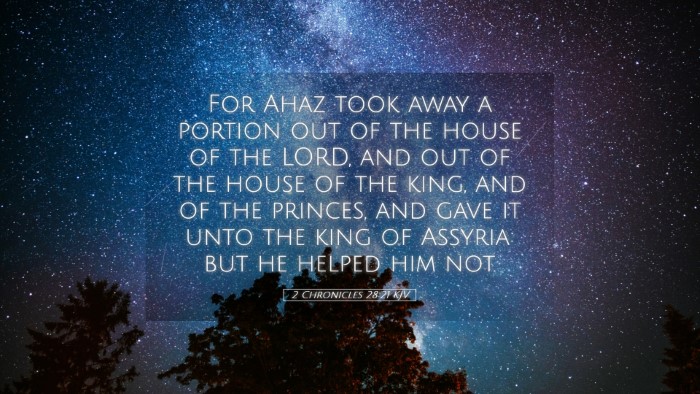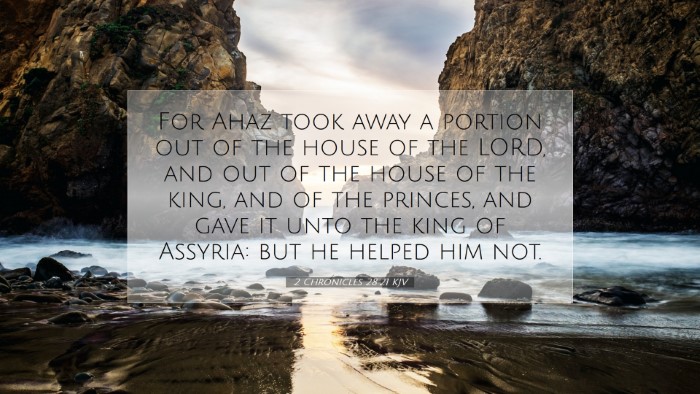Commentary on 2 Chronicles 28:21
Verse: 2 Chronicles 28:21
This verse reads: "For Ahaz took away a portion out of the house of the LORD, and out of the house of the king, and of the princes; and gave it unto the king of Assyria: but he helped him not." In this passage, we witness a critical moment in the life of King Ahaz of Judah, reflecting the spiritual decline and idolatry that characterized his reign.
Context and Background
The historical context of 2 Chronicles 28 reveals that Ahaz ruled during a turbulent time when Judah faced external threats, particularly from Israel and Syria. Instead of seeking help from Yahweh, Ahaz turned to the king of Assyria, Tiglath-Pileser III, hoping to secure military assistance against his enemies.
- Ahaz's Religious Apostasy: Ahaz is marked as one of the more egregious kings of Judah, engaging in practices that directly contravened the covenant with Yahweh.
- Political Alliances: His willingness to align himself with Assyria illustrates a lack of trust in God’s protection and a preference for worldly power.
Commentary Insights
Matthew Henry emphasizes the folly of Ahaz's decision, highlighting that instead of repenting and returning to God, Ahaz compounded his sins. He removed precious treasures from the temple, which signifies a direct insult to God and a troubling abandonment of the worship central to the Jewish faith.
Albert Barnes points out the irony in Ahaz's actions. By offering treasures meant for God to the Assyrian king, he sought human help while neglecting divine assistance. Barnes notes that this decision reveals a profound misunderstanding of true kingship and reliance upon God.
Adam Clarke delves deeper into the implications of Ahaz's sacrifices, suggesting that this act removed significant resources from the temple, which had long-standing implications for worship and the spiritual life of Israel. Clarke remarks on the profound despair that led Ahaz to believe that worldly alliances could save him, a thought process that is still relevant today as individuals and nations seek secular means for solutions to spiritual crises.
Theological Reflections
This verse encapsulates the broader themes of idolatry, misplaced trust, and the consequences of turning away from God’s ways. The actions of Ahaz serve as a cautionary tale for individuals and nations alike.
- The Nature of True Worship: Ahaz's stripping of the temple indicates a failure to recognize God’s sovereignty. Worship is not merely about ritual but about giving God what is rightfully His.
- The Danger of Compromise: By seeking alliances with foreign powers, Ahaz exemplifies how compromise with the world can lead to spiritual deterioration.
- The Failure of Human Alliances: Ahaz’s expectation that Assyria would help him underscores a misguided trust in human instruments rather than divine providence.
Practical Applications
For pastors, scholars, and students studying this passage, several applications emerge:
- Faithfulness in Leadership: Leaders must continuously seek God’s wisdom, particularly during crises, rather than relying on purely political or social maneuvering.
- Understanding Worship’s Importance: The church must prioritise genuine worship and ensure that the resources entrusted to it are used in a manner that honors God.
- Confronting Idolatry: Modern believers should examine their lives for areas where they might be compromising their faith in favor of secular solutions.
Conclusion
2 Chronicles 28:21 serves as a potent reminder of the perils associated with turning away from God in pursuit of worldly solutions. The commentary from Henry, Barnes, and Clarke collectively urges readers to reflect on their dependence on the Lord amidst life’s challenges, recognizing that true help comes from God alone.


